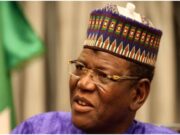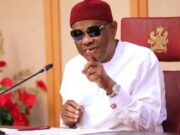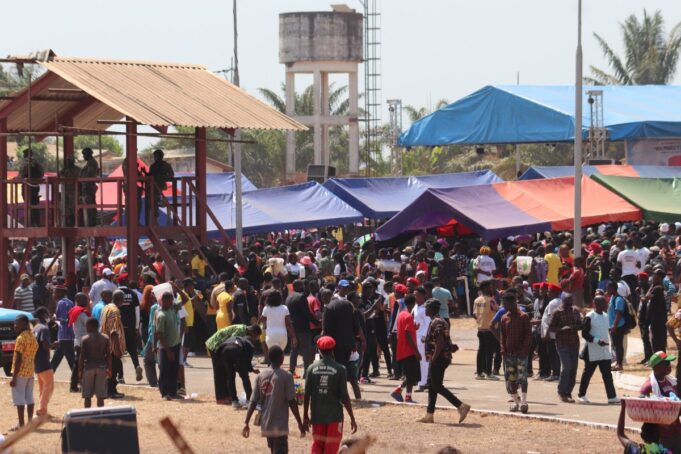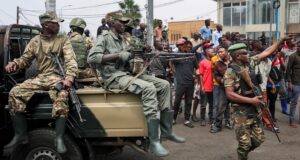Thousands of mourners gathered in northern Liberia on Saturday to bid farewell to former warlord-turned-politician, Prince Johnson, whose role in the country’s brutal civil wars made him both a symbol of terror and political influence.
Johnson, who passed away in November at the age of 72, was never held accountable for his actions despite being implicated in some of the most horrific atrocities during Liberia’s years of conflict.
The country endured two devastating civil wars from 1989 to 2003, which claimed over 250,000 lives and left a trail of destruction, including massacres, mutilations, sexual violence, and the use of child soldiers.
Johnson, a former rebel leader, became infamous in 1990 after a chilling video surfaced showing him sipping beer as his forces tortured and killed President Samuel Doe.
His actions during the war led the 2009 Truth and Reconciliation Commission (TRC) to label him the highest violator of human rights among individual perpetrators.
Saturday’s ceremony marked the conclusion of a five-day state funeral, during which his body was displayed outside the parliament building in Monrovia before being transported to his home region of Nimba in the country’s north.
The burial, which took place in Ganta city, was attended by a large crowd of Johnson’s supporters, including President Joseph Boakai, along with government officials and local mourners.
Many of those present were dressed in traditional attire, with some sporting red clothing and white chalk markings on their faces, a reflection of local customs.
Supporters carried wooden replicas of guns, symbolizing Johnson’s wartime leadership in the defense of Nimba.
Despite his violent legacy, Johnson was a deeply influential figure in Liberian politics.
After the war, he became a senator and played a significant role in kingmaking during the last three presidential elections before his death.
He also founded the PYJ Polytechnic University, named in his honor, where he was laid to rest.
Johnson’s crimes, as outlined by the TRC, included murder, extortion, forced labor, and other grave violations.
Although the TRC recommended that he and other warlords be prosecuted for their actions, no action was taken to hold him accountable, and Johnson never faced trial.
Johnson’s life was marked by his return to Liberia in 2004 after years in exile, where he presented himself as a preacher and a proponent of peace.
He denied any criminal wrongdoing, justifying his actions during the war as necessary to protect his people from the previous government.
His death leaves behind a complex legacy: one of violence, power, and political maneuvering, coupled with his controversial rejection of a war crimes tribunal that many believed could have brought justice to the victims of Liberia’s brutal civil wars.

















